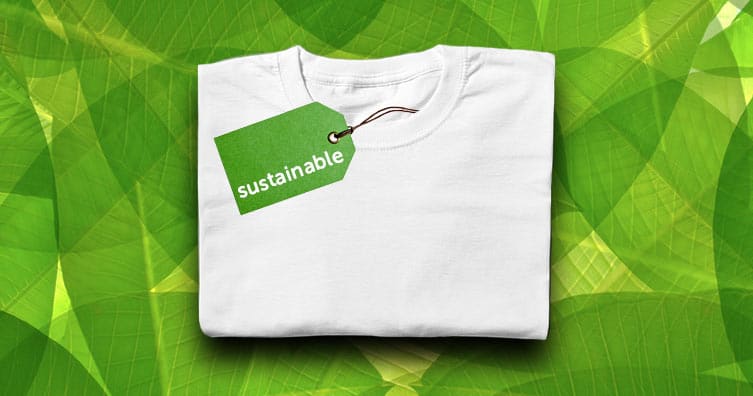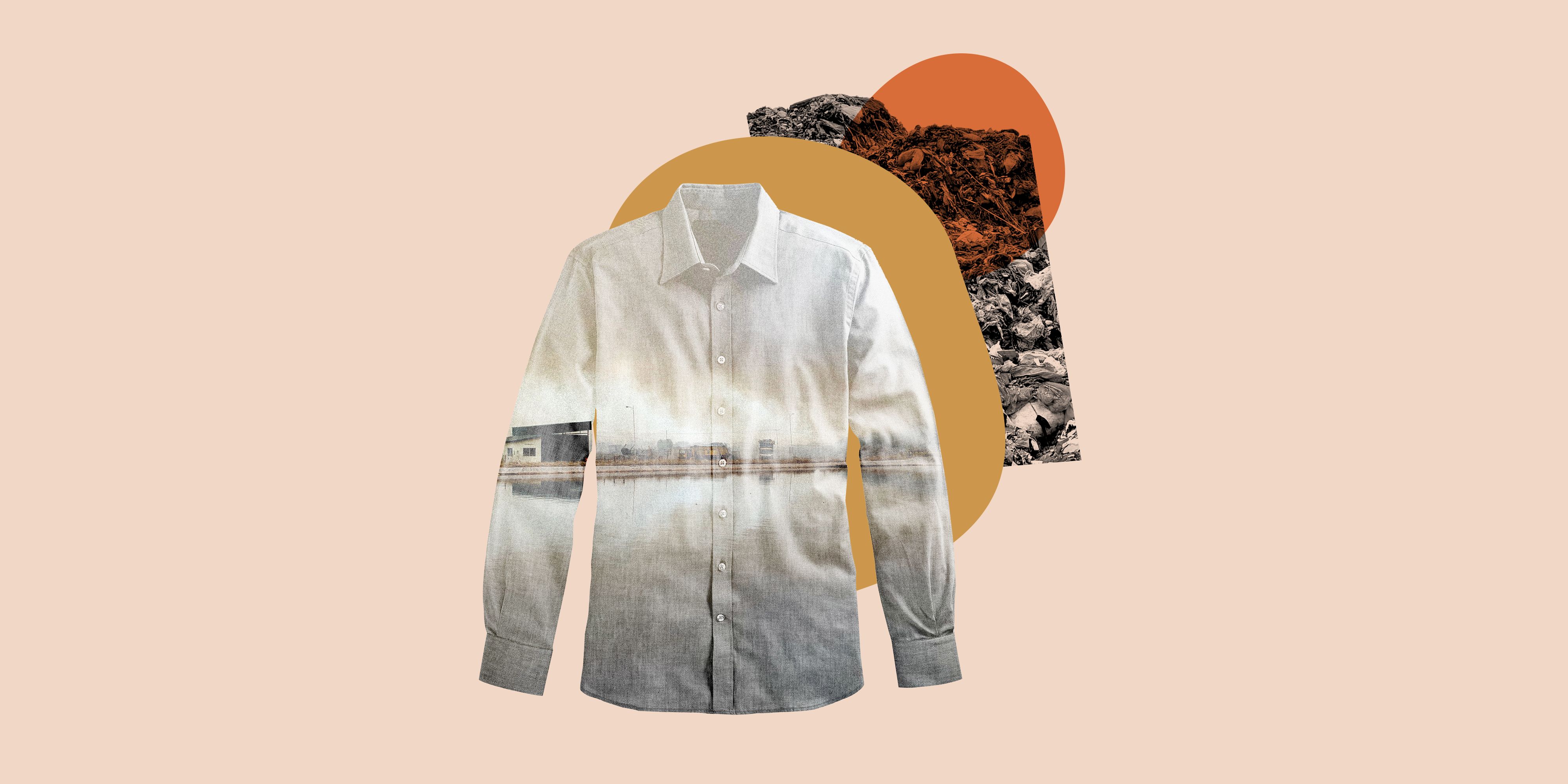Sustaining Regional Cape Town Sustainable Fashion for a Greener Future
Sustaining Regional Cape Town Sustainable Fashion for a Greener Future
Blog Article
Remain Ahead of the Curve by Exploring Innovative Fashion Fads
In a sector as dynamic as style, staying in advance includes even more than just adhering to existing trends-- it requires an exploration of technology. The convergence of modern technology and fashion proclaims a new period of consumer interaction.

Embracing Smart Textiles
Recently, the garment industry has actually witnessed a transformative shift with the combination of wise fabrics, a sophisticated innovation that blends technology with material. This development represents not only a combination of appearances and functionality but also a significant leap in the direction of sustainability and personalization in fashion. Smart textiles, also referred to as e-textiles, embed advanced electronics such as sensing units and conductive strings within the textile, making it possible for garments to connect with the atmosphere or the wearer.
These textiles are designed to monitor physical criteria, such as heart price or body temperature, providing real-time health analytics. Beyond wellness applications, wise textiles are additionally being made use of for flexible clothes, which can change shade or pattern in reaction to ecological stimuli, thus supplying a vibrant style experience.
Furthermore, the growth of energy-harvesting textiles that produce power from motion or sunlight is leading the method for self-sufficient wearable technology. This technology is interesting ecologically conscious customers and designers intending to minimize the ecological impact of fashion. As r & d in this field breakthrough, wise textiles are anticipated to become significantly common, reshaping the landscape of contemporary fashion with their multifunctional abilities.
The Rise of 3D Printing
Changing the manufacturing landscape, 3D printing has arised as a game-changer in the apparel industry. This sophisticated innovation has actually allowed developers to push the borders of creativity, generating elaborate and tailored garments that were previously unbelievable. By leveraging digital layout and additive manufacturing, 3D printing helps with the creation of intricate geometries and patterns, allowing designers to experiment with new structures and frameworks.
A noteworthy benefit of 3D printing in fashion is its capability to generate on-demand, minimizing waste and decreasing supply demands. This efficiency not only maximizes production processes however additionally enables fast prototyping, making it possible for developers to bring their visions to life in a shorter timeframe. Moreover, 3D printing sustains customization somewhat unparalleled by traditional techniques, supplying personalized fits and distinct styles tailored to private customer choices.
The surge of 3D printing has actually additionally democratized fashion, making it easily accessible to emerging designers who can now fabricate premium items without considerable monetary investment in standard production facilities. As innovation remains to development, the fashion market is poised to harness the full potential of 3D printing, exploring new materials and methods that will definitely redefine how style is developed and produced.
Sustainable Style Innovations
As the garment industry comes to grips with journalism requirement for environmental obligation, lasting style developments have arised at the leading edge of transformative adjustment. The growing recognition of environmental impact has fueled a shift in the direction of more eco-conscious methods and materials. Developers and brand names are currently focusing on sustainability, incorporating methods that decrease waste and minimize carbon footprints.
One substantial advancement is the rise of round fashion, which stresses recycling and upcycling to prolong the lifecycle of garments. This method not only minimizes waste but additionally motivates customers to embrace a more conscious approach to garments usage. Additionally, making use of sustainable products, such as organic cotton, hemp, and recycled polyester, has actually gained grip. These materials need much less water and energy throughout production, dramatically minimizing environmental effect.
An additional advancement exists in the adoption of ingenious dyeing strategies that utilize waterless processes or all-natural dyes, therefore decreasing the huge quantities of water and chemicals generally made use of in textile dyeing. Moreover, advancements in biotechnology have actually brought about the creation of lab-grown leather and textiles, offering cruelty-free and eco-friendly choices to standard products. Through these pioneering efforts, the fashion business is making significant strides in the direction of an extra lasting future.

Tech-Integrated Apparel
Tech-integrated clothing stands for a revolutionary blend of fashion and technology, reshaping exactly how individuals communicate with their clothes. This innovative domain name is like it noted by the inclusion of smart textiles and embedded digital elements, boosting both functionality and visual allure. From health and fitness trackers installed in sportswear to heated jackets managed through smart device applications, tech-integrated apparel supplies consumers extraordinary comfort and adaptability.
Pioneering brands are driving this trend, concentrating on creating garments that reply to ecological stimulations or customer commands. For circumstances, some garments can alter color or pattern in reaction to temperature shifts, while others incorporate biometric sensing units to check wellness metrics like heart price or anxiety levels. The seamless integration of modern technology right into textiles additionally reaches ecological sustainability, with efforts to develop self-cleaning textiles or garments that change to weather conditions, thus minimizing the demand for several layers.
Furthermore, the advent of wearable modern technology is not simply limited to clothing yet prolongs to accessories like watches and glasses, additional broadening the extent of tech-integrated fashion. As the sector remains to innovate, the possibility for personalization and personalization in garments grows, offering customers distinct, tech-enhanced style experiences that deal with their individual demands and preferences.
Future of Virtual Style
In recent years, the future of digital fashion find this has actually arised as a transformative pressure within the market, leveraging developments in electronic innovation to redefine just how fashion is developed, experienced, and taken in. By incorporating enhanced reality (AR), online fact (VIRTUAL REALITY), and 3D design devices, designers can currently craft immersive and interactive experiences that go beyond traditional fashion borders. Online style permits the creation of garments that exist solely in electronic environments, providing countless possibilities for technology without the limitations of physical manufacturing.
This digital shift not only offers possibilities for imaginative expression yet also addresses sustainability issues intrinsic in traditional style practices. Cape Town Sustainable Fashion. By getting rid of the requirement for physical resources, digital fashion lowers waste and decreases carbon footprints. Furthermore, the increase of online fashion straightens with the boosting consumer demand for personalized and distinct experiences, as online garments can be personalized and customized to specific choices with convenience

Conclusion
The style sector's future lies in the integration of ingenious modern technologies and lasting practices. Online style is positioned to redefine customer communications.
In recent years, the fashion industry has experienced a transformative change with the assimilation of smart textiles, an innovative advancement that mixes modern technology with fabric.As the fashion market grapples with the pressing requirement for ecological obligation, lasting style technologies have actually arised at the center of go to my site transformative adjustment.In current years, the future of digital style has arised as a transformative pressure within the sector, leveraging developments in digital innovation to redefine just how fashion is produced, experienced, and eaten. The increase of digital style lines up with the raising consumer demand for unique and tailored experiences, as online garments can be customized and customized to private choices with ease.
The fashion industry's future lies in the integration of sustainable practices and cutting-edge modern technologies.
Report this page